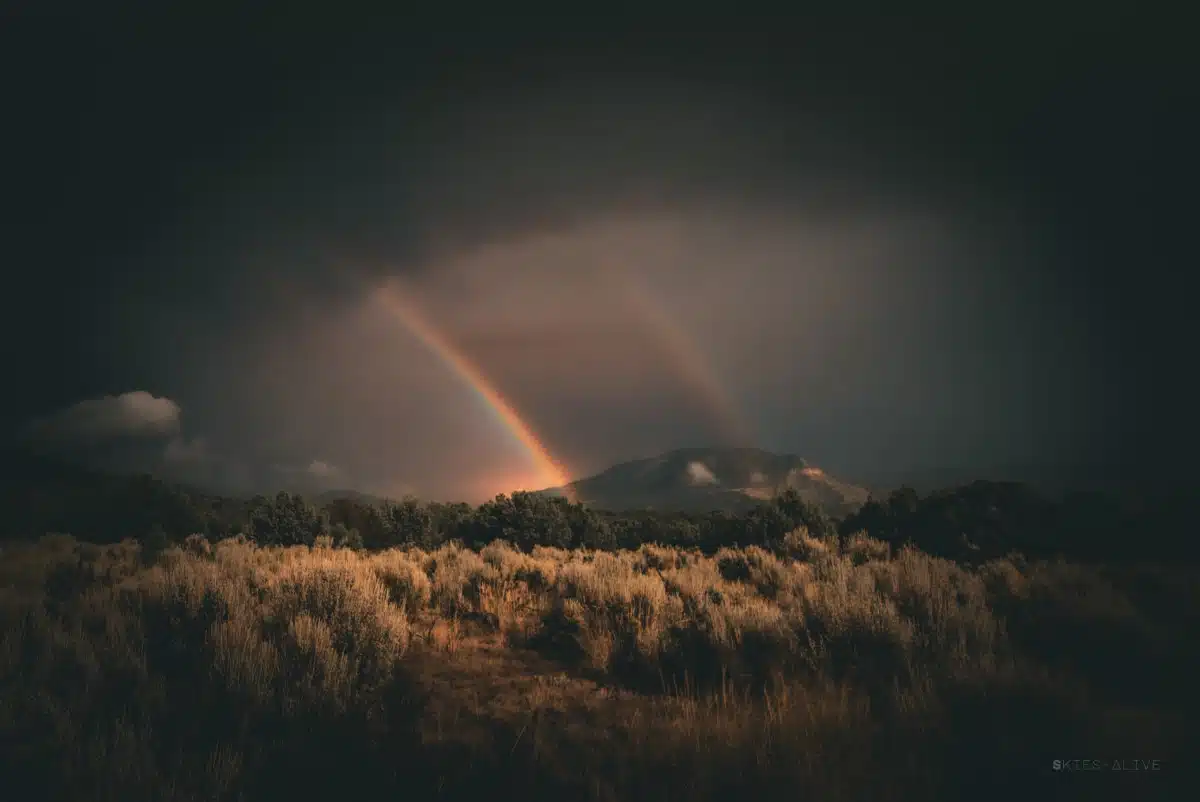
We’ve all seen rainbows, but have you ever witnessed a moonbow? Also known as a lunar rainbow, this optical phenomenon happens when moonlight is refracted through water droplets in the air. They’re rarer than rainbows, which makes photographer Aaron Watson‘s image of a double moonbow even more special.
Watson of Skies-Alive Photography captured the incredible image in Colorado around 2 a.m., just one day before August’s Supermoon Blue Moon. That evening, the photographer was awoken by the sound of rain when he looked out and saw the nearly full moon. Knowing that these were optimal conditions for a moonbow, he picked up his equipment and, to his delight, saw a double moonbow. It lasted for just a few minutes, but he was able to immortalize the moment on camera.
“Seeing the moonbow in this nighttime setting is subtle and surreal,” he tells My Modern Met. “This moonbow is a double, which adds to the allure. The sagebrush meadow and beautiful mountain in the distance provide a lovely touch of natural scenery. It was a wonderful but fleeting moment and I am glad to have the photos to remember it by.”
This is the third moonbow that Watson has photographed in the past year. Each sighting occurred when evening rain showers created the perfect environment. Given that he lives in an area with minimal skyglow and has the proper equipment to take long exposures, he was able to record all of the moonbows he saw this summer.
Anyone attempting to do the same will need three key ingredients—nighttime, a bright moon, and rain.
“If it is daytime or near twilight, it’s probably a regular sun rainbow,” Watson warns. “Second, the moon needs to be in the sky. Also, its phase needs to be full or nearly full to be bright enough to make the moonbow shine. And third, there needs to be rain. Snow won’t do it.
Late spring, summer, and early autumn are the best seasons, but it could appear anytime there is a bright moon and rain. Usually, with rain comes clouds, so for a moonbow, there needs to be a clear patch for the moon to shine through. Finally, the angle of the moon. Moonbows happen when the moon is close to the horizon (within 45 degrees), not when the moon is directly overhead.”
Armed with that knowledge, Watson hopes that people will become more aware of moonbows and try their hand at spotting one for themselves. For now, scroll down to see more of the spectacular double moonbow, as well as the single moonbow Watson photographed in July.
Photographer Aaron Watson photographed a rare double moonbow in mid-August.
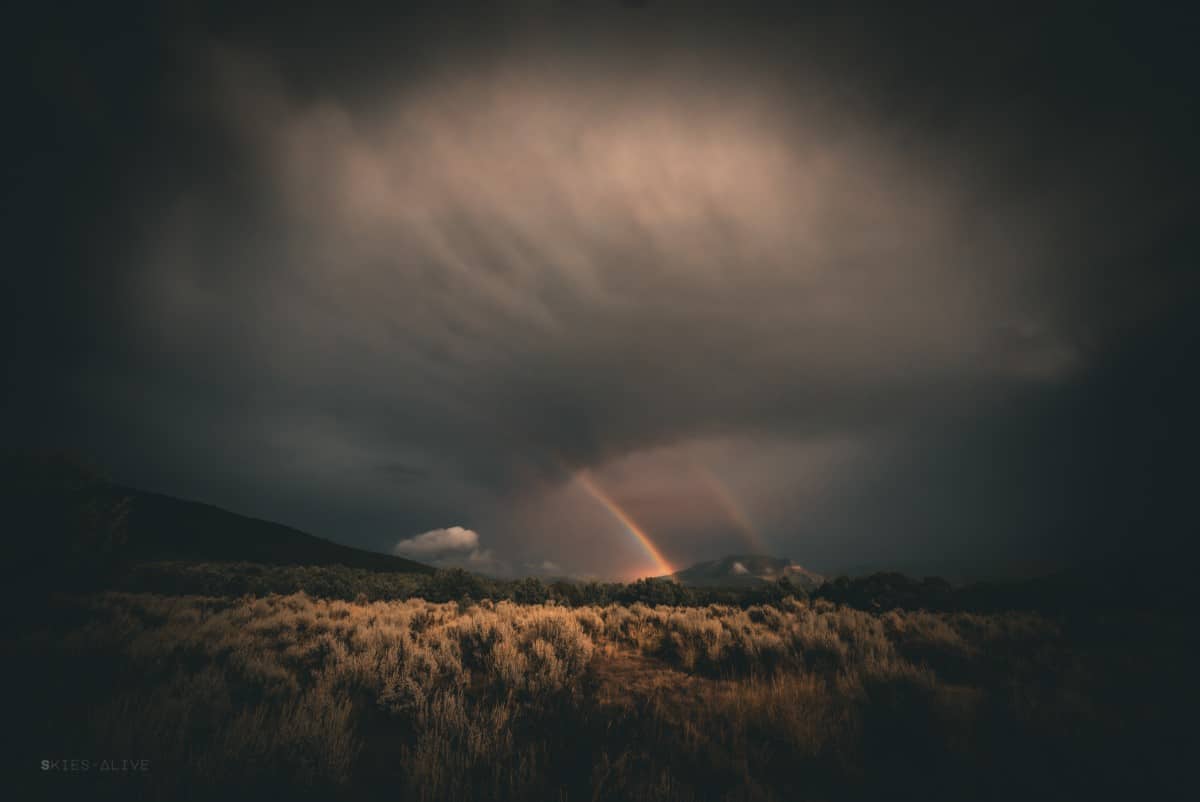
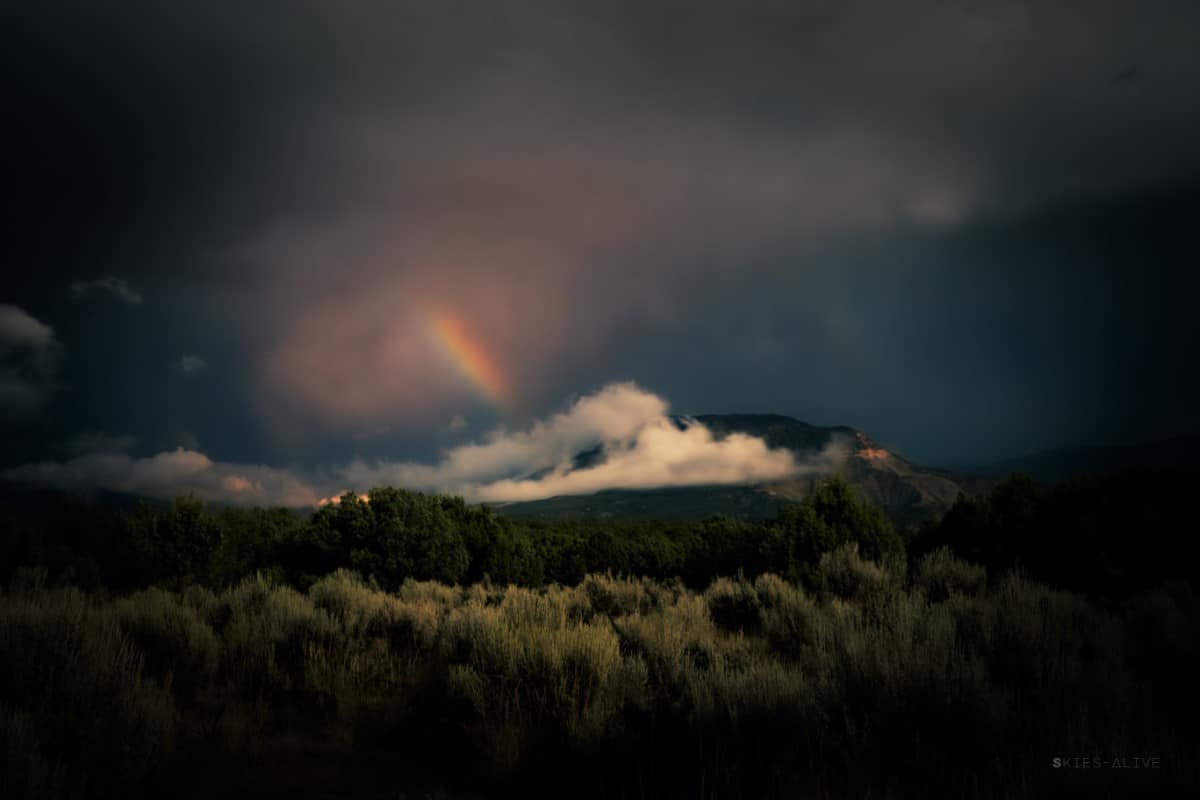
The August double moonbow started as a single moonbow.
Moonbows occur when moonlight is refracted through water droplets in the air and are much rarer than rainbows.
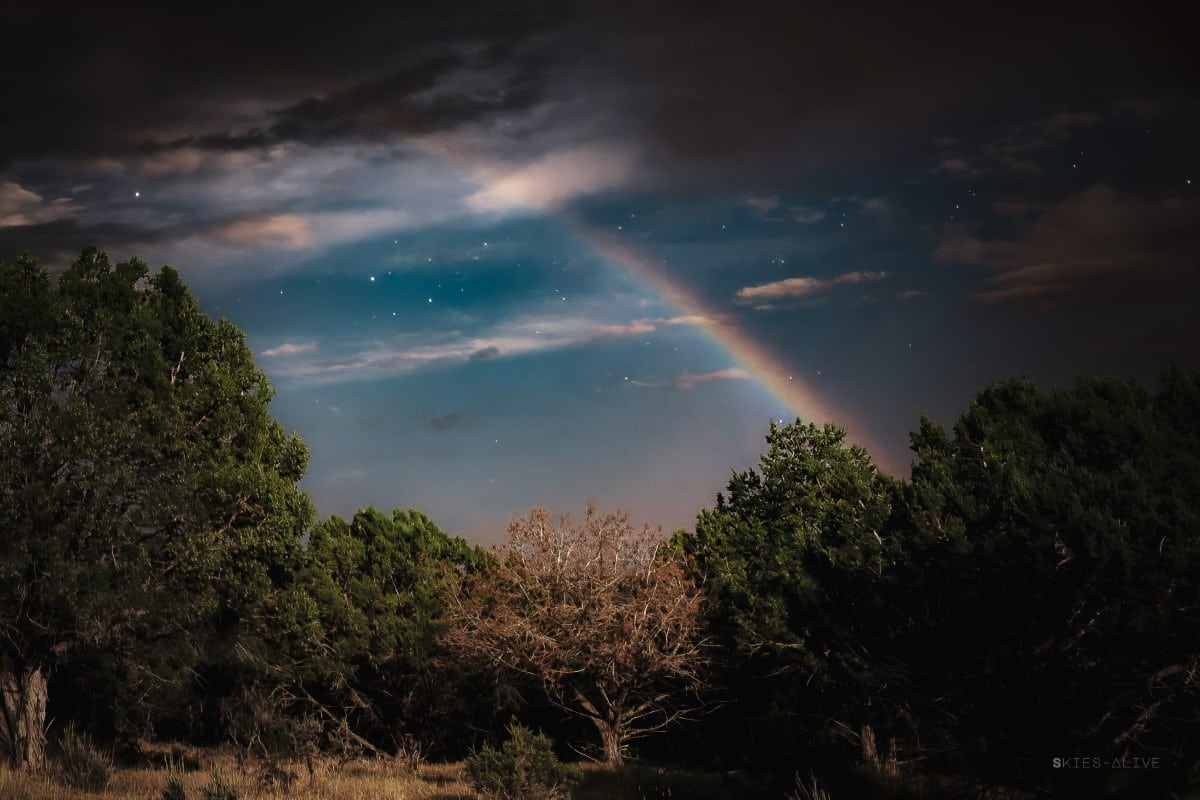
July 2024 moonbow
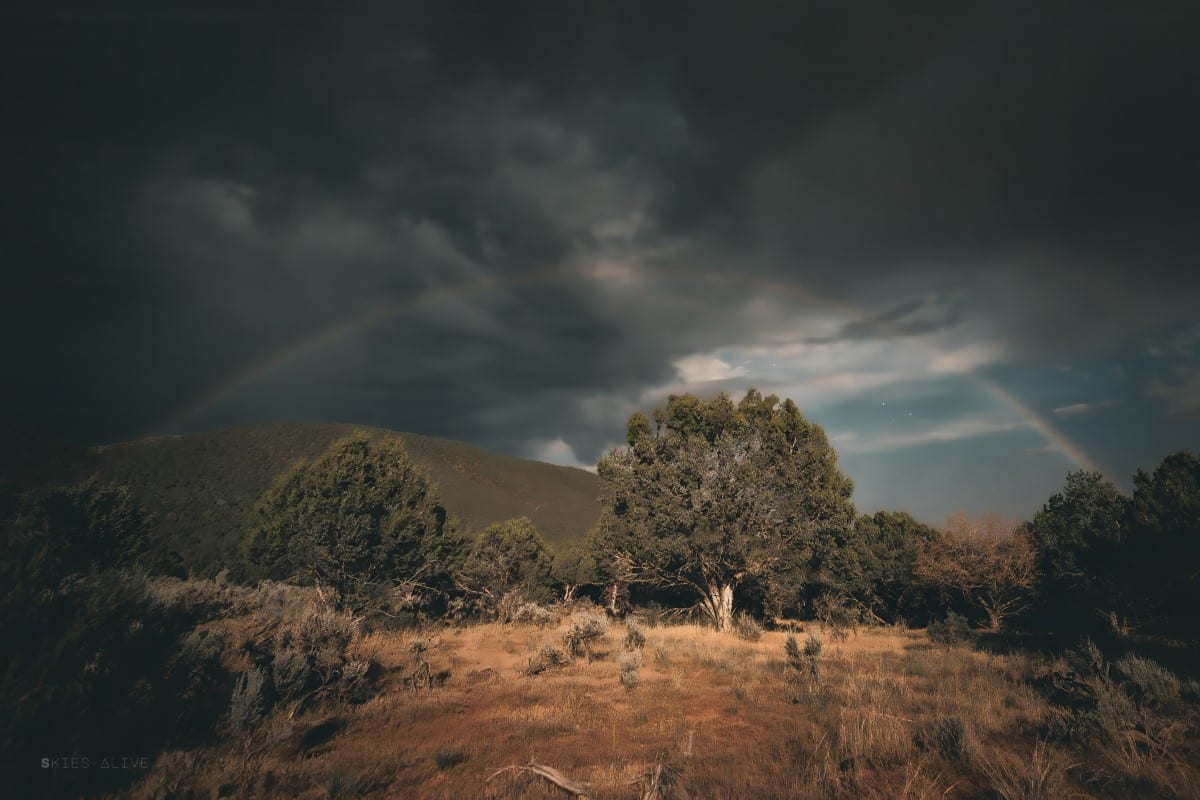
July 2024 moonbow
